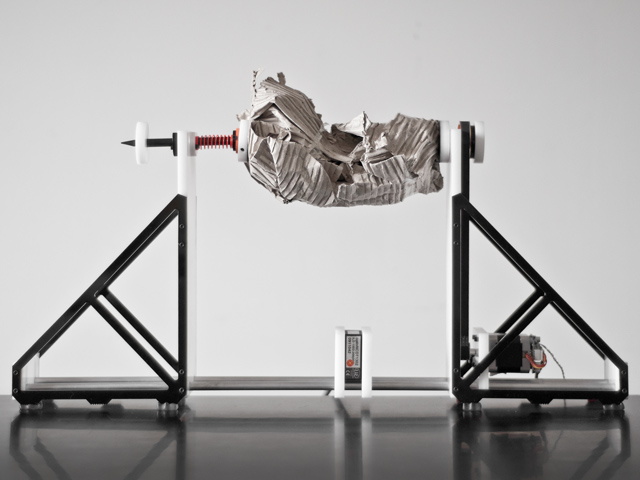
You might think of this project as a poetics of sensory substitution: swapping one capacity for another. There are a number of tools in development now that translate visual material into audible "colors," or use tactile signals to "see" the environment—they create an artificial form of synaesthesia that's meant to compensate for lost function in one or another bodily sense.
Dennis Paul's Instrument for the Sonification of Everyday Things externalizes the shape of multiple objects—in sound waves. Like a morphological record player:
[vimeo http://www.vimeo.com/49484255 w=500&h=281]
An Instrument for the Sonification of Everday Things from Dennis P Paul on Vimeo.
via @gabswolf.